Events
UBHub presents at the IUCN Urban Nature Indexes webinars
2023.June
UBHub Facilitates AIPH Green City Webinar
2023.April.11
Jennifer Rae Pierce was invited to facilitate the bilingual April webinar in the AIPH Green City Briefings 2022/2023 series on behalf of UBHub, featuring the winner of the Living Green for Biodiversity category of the AIPH World Green City Awards 2022: Bogotá, Colombia.
UBHub celebrates the adoption of the Kunming-Montreal GBF, highlighting local and urban impacts
2022.December.23
Congratulations to the 196 Parties to the Convention on Biological Diversity for the adoption of the Kunming-Montreal Global Biodiversity Framework with a vision statement of “By 2050, biodiversity is valued, conserved, restored and wisely used, maintaining ecosystem services, sustaining a healthy planet and delivering benefits essential for all people.” The agreement includes 4 goals and 23 targets for the parties to implement immediately and to achieve by 2030.
Click here to read the Kunming-Montreal Global biodiversity framework
There are many issues discussed in the agreement that have direct and indirect impacts on decision-making at the local and urban levels. Particular highlights include:
- Paragraph 10 on the Whole-of-government and whole-of-society approach: “This is a framework for all – for the whole of government and the whole of society. Its success requires political will and recognition at the highest level of government, and relies on action and cooperation by all levels of government and by all actors of society”
- In particular, Target 12 is focused on urban areas and it states: “Significantly increase the area and quality and connectivity of, access to, and benefits from green and blue spaces in urban and densely populated areas sustainably, by mainstreaming the conservation and sustainable use of biodiversity, and ensure biodiversity-inclusive urban planning, enhancing native biodiversity, ecological connectivity and integrity, and improving human health and well-being and connection to nature and contributing to inclusive and sustainable urbanization and the provision of ecosystem functions and services.” However, most of the 23 targets have an urban component when the direct and indirect impacts of urban areas are considered. Within the first section on reducing threats to biodiversity, every target has implications for urban areas: Target 1 encourages participatory management of natural areas, Target 2 calls for 30% of degraded areas to be restored, Target 3 calls for the protection of 30% of land and aquatic areas, Target 4 seeks to reduce risks of species extinction, Target 5 ensures sustainable harvest and trade of wild species, Target 6 reduces the impacts of invasive species, Target 7 reduces pollution, and Target 8 explores linkages with climate change. Within the second section on meeting people’s needs through sustainable use and benefit-sharing, target 11 on enhancing ecosystem services and target 12 on urban areas are of particular interest. Within the third and final section on tools and solutions for implementation and mainstreaming, Target 14 on mainstreaming, Target 16 on reducing consumption, Target 21 on information and awareness-raising, and Targets 22 and 23 on equitable and gender-responsive participation and decision-making are particularly relevant.
- Section K encourages increasing the awareness of biodiversity by all sectors of society
There is also agreement CBD/COP/15/L22 called “engagement with subnational governments, cities, and other local authorities to enhance implementation of the post-2020 global biodiversity framework” This document calls for the involvement of local governments in national biodiversity strategies as well as support for local biodiversity strategy development and implementation, including capacity-building assistance and financial resources. It encourages collaboration between governance institutions and private institutions, emphasizes the important role of local governments in raising public awareness, and calls for monitoring and measurement of local biodiversity efforts, particularly through tools such as the Singapore Index for Cities’ Biodiversity.
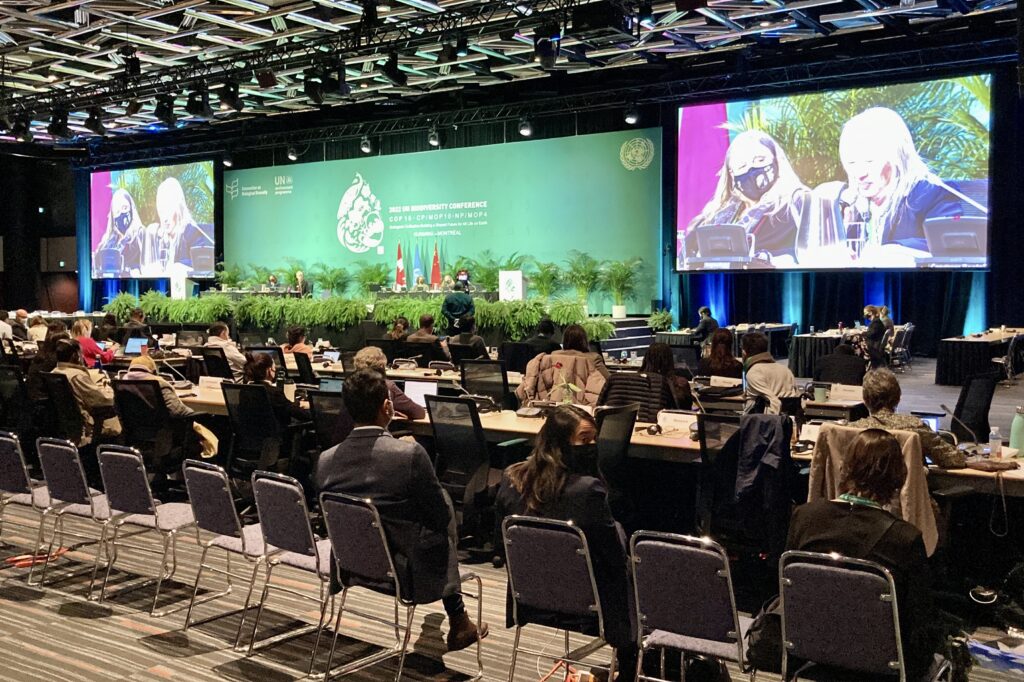
UBHub at the Convention on Biological Diversity 15th Conference of the Parties (CBD COP15) in Montreal
2022.December
The UN Conference on Biological Diversity (CBD) COP15 kicked off on 7 December in Montreal (OEWG 5/CBD COP 15/CP-MOP 10/NP-MOP 4), with high expectations about a deal to protect the planet’s biological diversity.
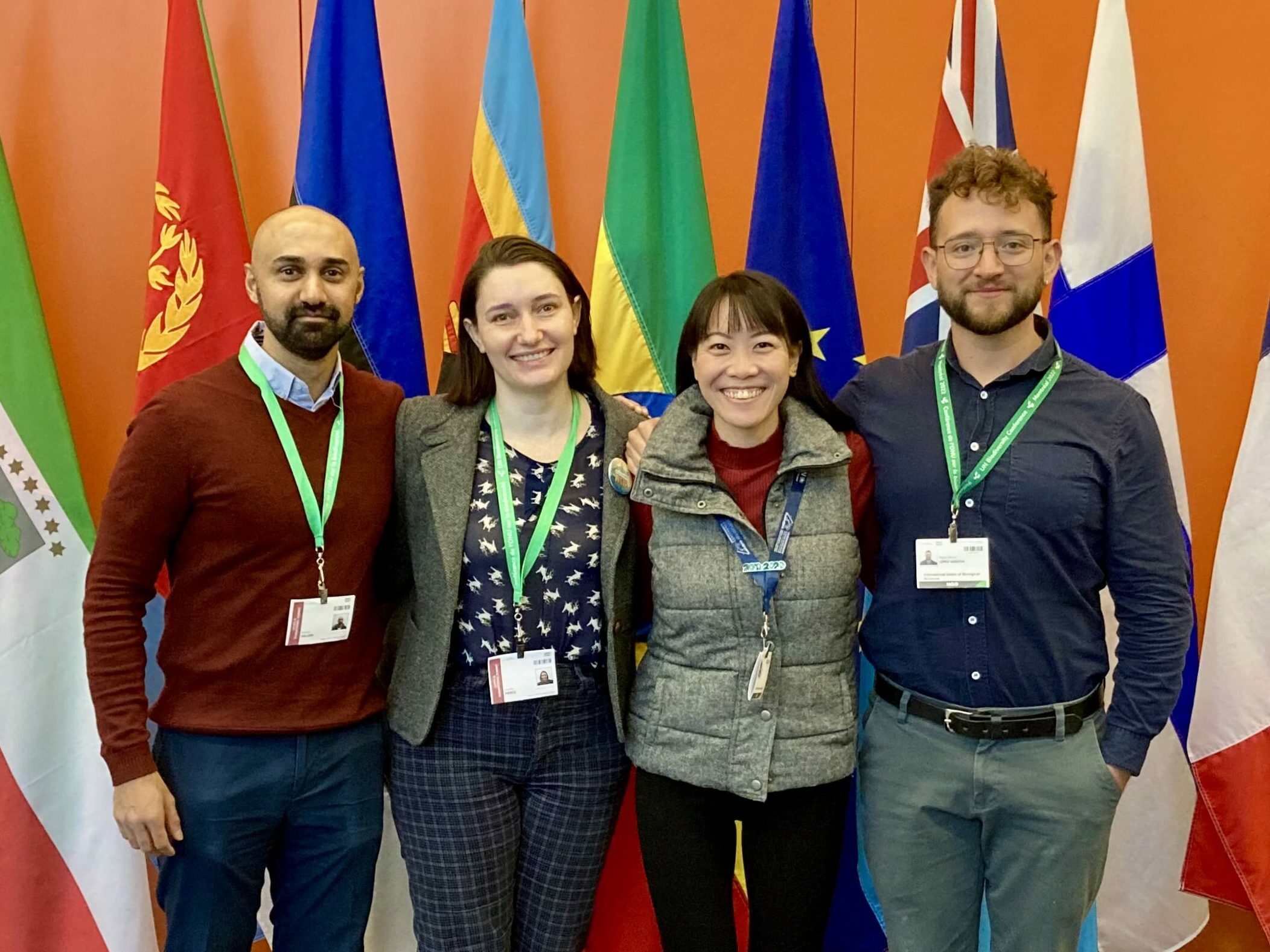
UBHub’s Steering Committee members travelled to Montreal to attend several events, including the 7th Summit for Subnational Governments & Cities, the Nature Positive Pavilion, as well as the Fifth Science-Policy Forum for Biodiversity and the Eighth International Conference on Sustainability Science.
Meeting in Montreal also provided the opportunity for the team to advance our strategic planning and align our goals to the current international negotiations.
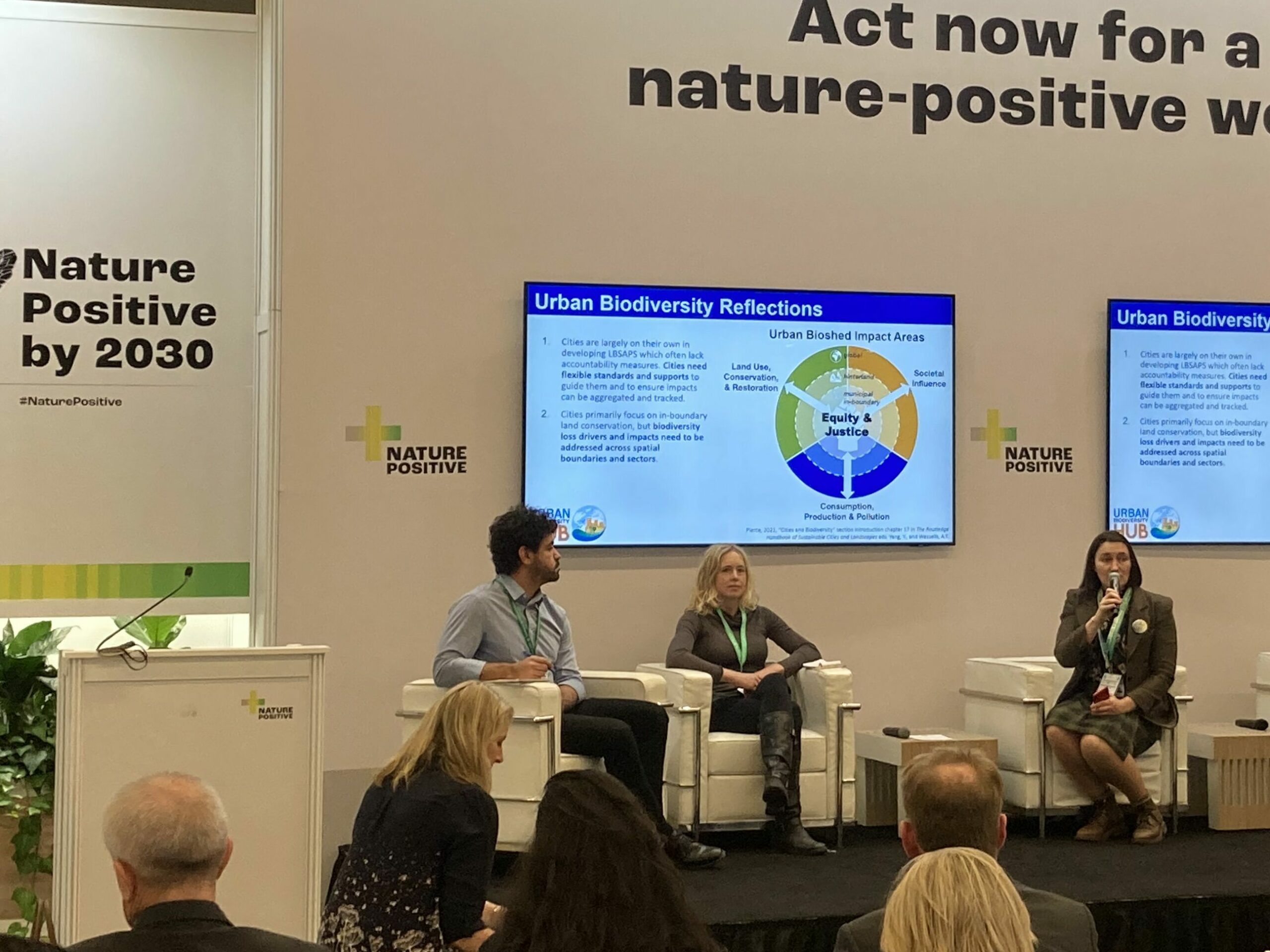
Speaker at the Global Youth Biodiversity Network booth on UBHub’s work and opportunities to contribute
JRP TO ADD PHOTO OF THIS
Global Biodiversity Framework Policy Brief Workshop in Geneva, Switzerland
DATE
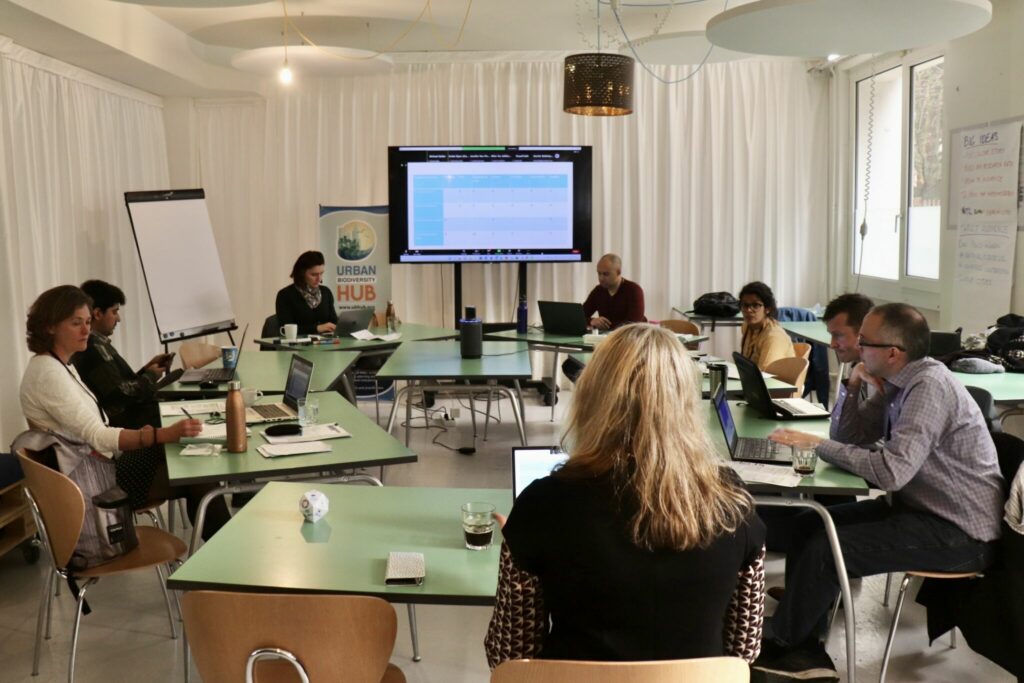
UBHub helps promote IUCN’s latest knowledge product, the Urban Nature Indexes at the IUCN World Conservation Congress in Marseille, France
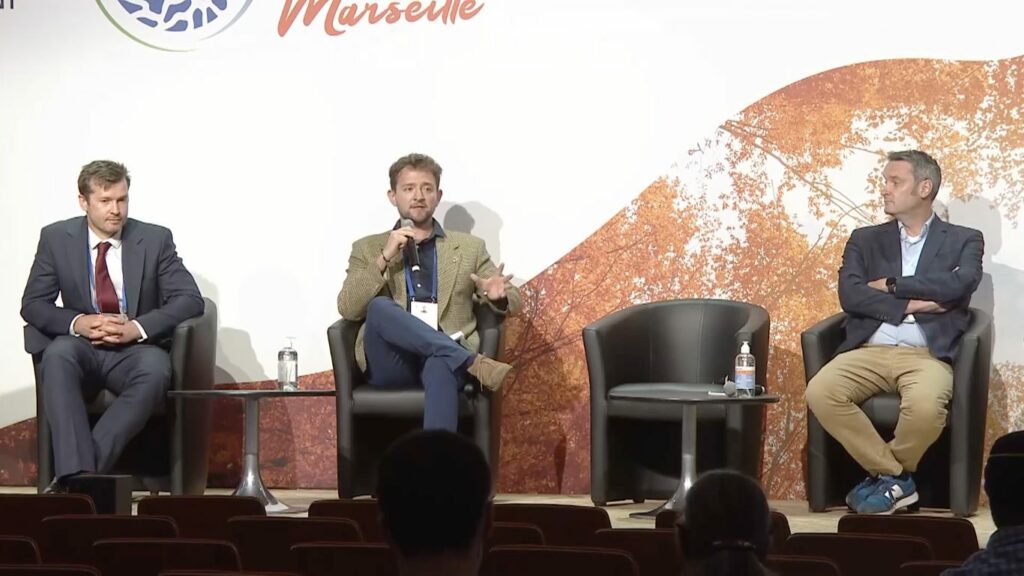
UBHub Founded at the Convention for Biological Diversity COP in Cancun, Mexico
2016.December
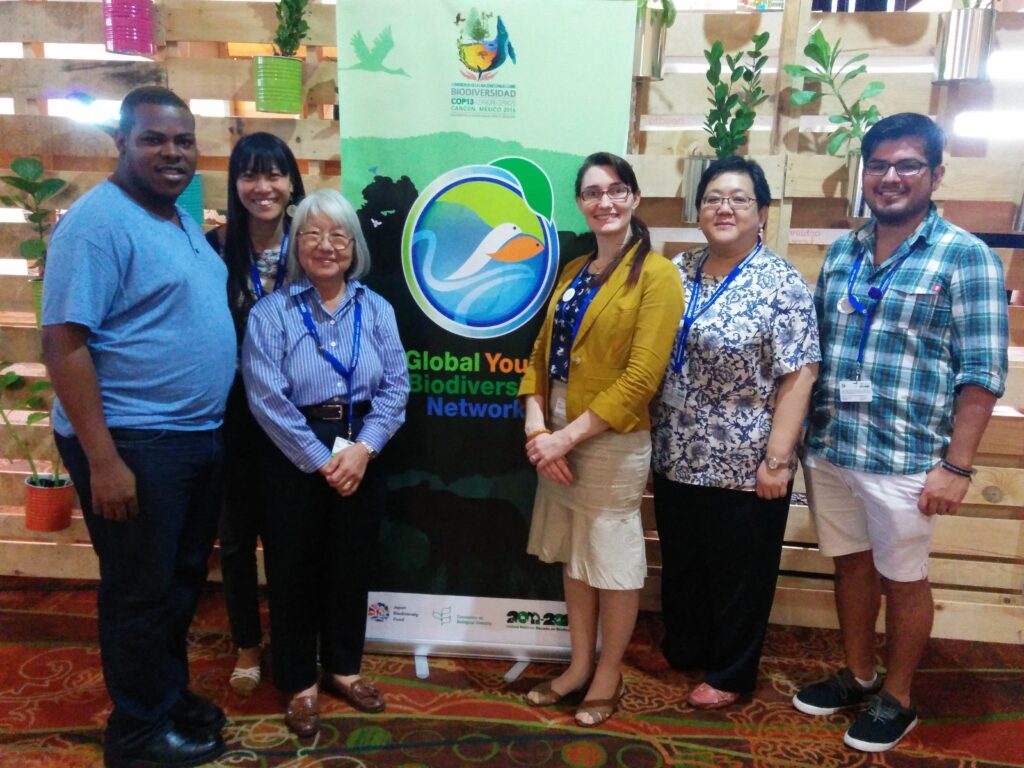
The concept for UBHub was formed in December of 2016 at the 13th Conference of the Parties of the Convention on Biological Diversity in Cancun, Mexico (then under the name Cities Biodiversity Index). We came together out of mutual interest in promoting measurable biodiversity actions in cities around the world. Many of the original members were recruited from the Global Youth Biodiversity Network (GYBN). We have since built an international organizational structure that is maintained via regular online meetings and reliance on the latest in remote team management tools.